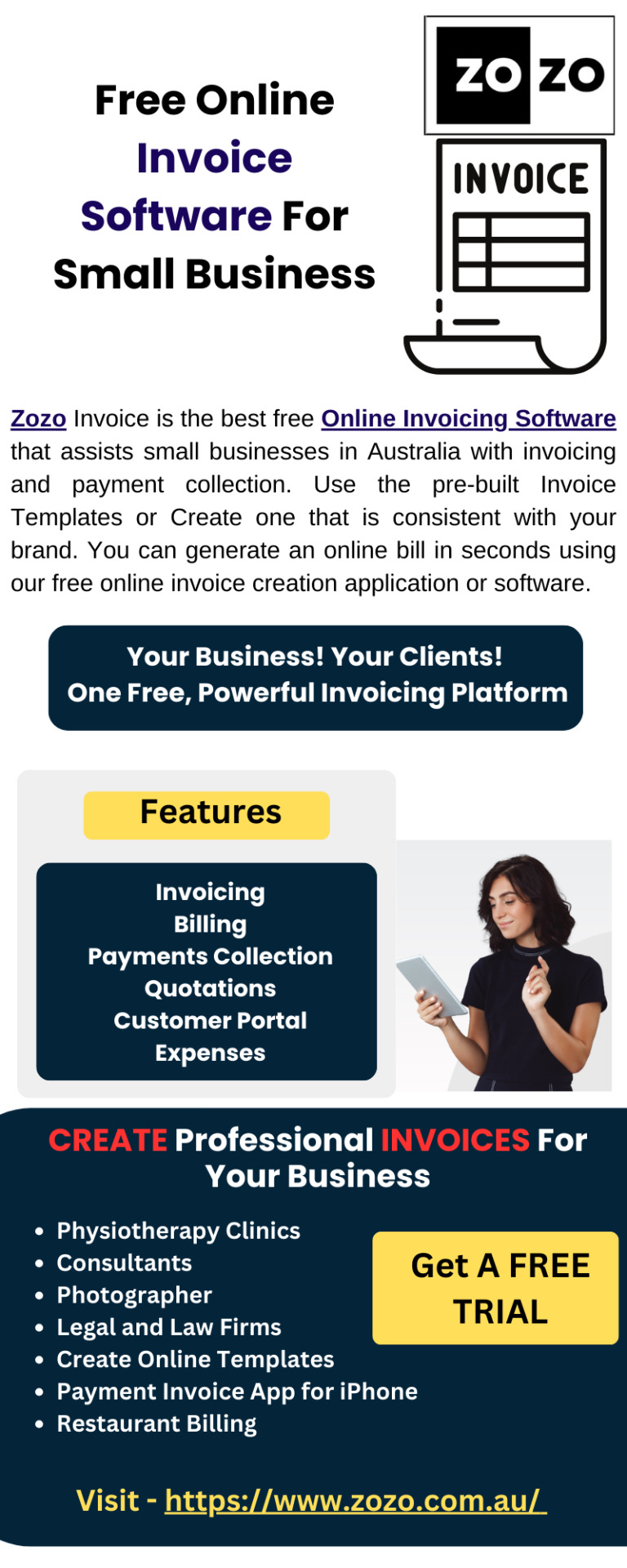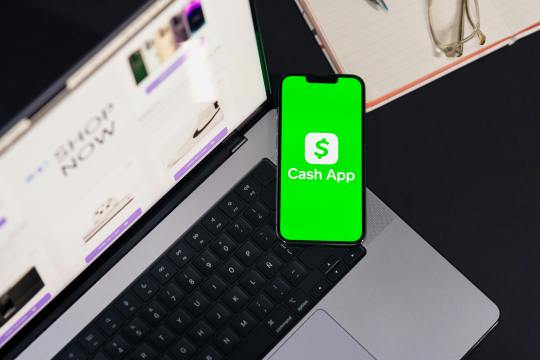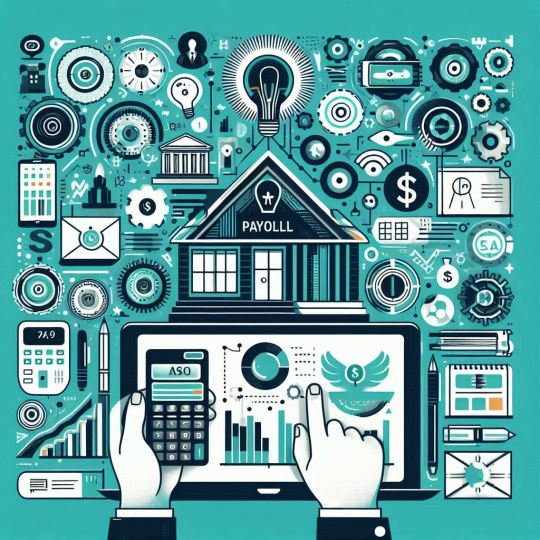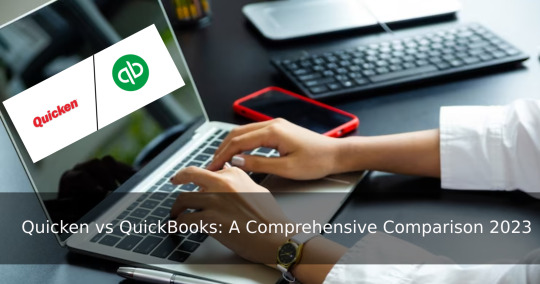#invoice app for small business
Explore tagged Tumblr posts
Text

Searching for Online Invoicing Software that makes managing customer information stress-free, saves you time, and gets you paid? Zozo is a Free Online Invoice Creation application that allows you to create invoices online quickly and easily. With just one click, our Invoice Generator—which is trusted by millions of customers—creates eye-catching, polished invoices for businesses. It's an Easy Invoice Maker. The greatest invoice payment app is offered by ZoZo to small businesses. Reach for more details - https://www.zozo.com.au/
#online invoicing software#online billing software#free invoice software#free invoice generator#invoice app#invoice create app#create invoice free#best free invoice software#invoice app for small business#invoice software free#pay invoice software#invoice creation application#invoice creation software#online free invoice generator#easy invoice maker
1 note
·
View note
Text
Free invoicing Software
Urban Ledger: Simplifying Finances, Empowering Businesses

Urban Ledger is a smart financial management platform designed to help businesses and individuals track transactions, manage credit, and streamline payments effortlessly. With an intuitive digital ledger, automated reminders, and secure payment integrations, Urban Ledger ensures seamless financial tracking, reducing errors and enhancing cash flow. Whether you are a small business, freelancer, or enterprise, our platform empowers you with real-time insights, easy invoicing, and multi-channel payment options. Say goodbye to manual bookkeeping and experience the future of hassle-free financial management with Urban Ledger.
Urban Ledger: The Ultimate Digital Ledger App for Business Finance Tracking
Managing finances has never been easier with Urban Ledger, the best digital ledger app designed to streamline business finance tracking. Whether you’re a small business owner, freelancer, or entrepreneur, our platform helps you maintain online payment management, track expenses, and manage credits effortlessly.
With Urban Ledger, you get a secure and smart accounting solution that simplifies expense & credit management, ensuring you never miss a payment or outstanding balance. Say goodbye to manual bookkeeping and experience the best accounting software for small business, offering real-time insights, automated reminders, and multi-channel payment options.
Try Urban Ledger – The Ultimate Digital Ledger App for Your Business!
Take control of your business finance tracking with Urban Ledger, the smartest digital ledger app designed to simplify online payment management and expense & credit management. Whether you’re a small business owner, freelancer, or entrepreneur, our platform ensures seamless transactions, automated reminders, and real-time financial insights.
Key Features:
Effortless expense & credit management
Secure online payment management
Smart invoicing & automated reminders
Real-time insights for business finance tracking
The best accounting software for small business
Try Urban Ledger Today! Visit our website to explore more: https://geturbanledger.com/
#free invoicing software#accounting software#Digital Ledger App#Online Payment Management#Business Finance Tracking#Expense & Credit Management#Best Accounting Software for Small Business
1 note
·
View note
Text
Are you looking for the top software device to check invoices easily and efficiently? Look no further than Fake Invoice Tracker! Our cutting-edge technology will help you keep track of all your invoices in one convenient place, saving you time and effort. Say goodbye to manual invoice tracking and say hello to an automated solution that works for you.
Visit here: https://fakeinvoicetracker.com/
#best Invoice tracker#Best Software tool to check fake invoice#Best Invoice and eway bill tracking app#Top software device to check invoice#top tracking invoice software for Business#fake invoice tracking software for supply chain management#Best Software device to check fake invoice#best online product tracking software#Best Invoice tracking Software for Small Businesses#eway bill tracking software
0 notes
Text

Free Simple GST Invoicing Billing App For Small Business - OnlineKhata
OnlineKhata's powerful accounting app is designed to simplify your financial management. Keep track of transactions, generate detailed reports, and achieve better control over your business's finances.https://onlinekhata.co.in/free-invoicing-app-for-small-businesses/
0 notes
Text
Hvac Service Software
#I can provide you with information about HVAC service software. HVAC service software is a type of software that is designed to help HVAC co#inventory management#job costing#invoicing#and customer management.#best HVAC service software#HVAC service software for small business#HVAC service software#HVAC software and mobile app
0 notes
Text
What Are the Benefits of Using Cash App for Payments?

Cash App is a popular app for making quick and easy payments. It helps people send money, receive payments, and even invest. Many users find it useful for everyday transactions. It is simple and fast, making it a favorite among young users. With just a few taps, you can send money or buy items. Cash App also offers features like a free debit card. You can use it to pay at stores or online. It’s a modern way of managing money.
Cash App is great because it’s easy to use. Unlike traditional banks, Cash App allows you to send money instantly. You don't need to wait days for transfers. This is helpful when you need money quickly. For example, if you owe a friend and need to pay back today, Cash App lets you do it without delay. It’s also secure. Cash App uses encryption to protect your data. You can feel safe knowing your money is protected.
Another benefit is Cash App’s rewards system. Users can earn discounts and cash back. This is especially useful for frequent shoppers. Imagine buying groceries with your Cash App card. You might earn a reward after each purchase. Plus, Cash App doesn’t charge monthly fees or have hidden costs. Many banks have high fees for transfers, but Cash App doesn’t. This makes it cost-effective for everyone, especially people on tight budgets.
Cash App is great for anyone who wants simplicity. It’s not just for sending money; you can also buy and sell stocks or Bitcoin. For example, a user might invest in Bitcoin with a few taps on the screen. With Cash App, it’s easy to control your investments. The app is also good for small business owners. They can send invoices or receive payments through Cash App. It saves time and makes managing finances easier. Cash App gives you a lot of control and flexibility. It’s a tool many people trust for fast, easy, and secure payments.
5 notes
·
View notes
Text
Your Guide to Choosing the Right AI Tools for Small Business Growth
In state-of-the-art speedy-paced international, synthetic intelligence (AI) has come to be a game-changer for businesses of all sizes, mainly small corporations that need to stay aggressive. AI tools are now not constrained to big establishments; less costly and available answers now empower small groups to improve efficiency, decorate patron experience, and boost revenue.

Best AI tools for improving small business customer experience
Here’s a detailed review of the top 10 AI tools that are ideal for small organizations:
1. ChatGPT by using OpenAI
Category: Customer Support & Content Creation
Why It’s Useful:
ChatGPT is an AI-powered conversational assistant designed to help with customer service, content creation, and more. Small companies can use it to generate product descriptions, blog posts, or respond to purchaser inquiries correctly.
Key Features:
24/7 customer service via AI chatbots.
Easy integration into web sites and apps.
Cost-powerful answers for growing enticing content material.
Use Case: A small e-trade commercial enterprise makes use of ChatGPT to handle FAQs and automate patron queries, decreasing the workload on human personnel.
2. Jasper AI
Category: Content Marketing
Why It’s Useful:
Jasper AI specializes in generating first rate marketing content. It’s ideal for creating blogs, social media posts, advert reproduction, and extra, tailored to your emblem’s voice.
Key Features:
AI-powered writing assistance with customizable tones.
Templates for emails, advertisements, and blogs.
Plagiarism detection and search engine optimization optimization.
Use Case: A small enterprise owner uses Jasper AI to create search engine optimization-pleasant blog content material, enhancing their website's visibility and traffic.
Three. HubSpot CRM
Category: Customer Relationship Management
Why It’s Useful:
HubSpot CRM makes use of AI to streamline purchaser relationship control, making it less difficult to music leads, control income pipelines, and improve consumer retention.
Key Features:
Automated lead scoring and observe-ups.
AI insights for customized purchaser interactions.
Seamless integration with advertising gear.
Use Case: A startup leverages HubSpot CRM to automate email follow-ups, increasing conversion costs without hiring extra staff.
Four. Hootsuite Insights Powered by means of Brandwatch
Category: Social Media Management
Why It’s Useful:
Hootsuite integrates AI-powered social media insights to help small businesses tune tendencies, manipulate engagement, and optimize their social media method.
Key Features:
Real-time social listening and analytics.
AI suggestions for content timing and hashtags.
Competitor evaluation for a competitive aspect.
Use Case: A nearby café uses Hootsuite to agenda posts, tune customer feedback on social media, and analyze trending content material ideas.
Five. QuickBooks Online with AI Integration
Category: Accounting & Finance
Why It’s Useful:
QuickBooks Online automates bookkeeping responsibilities, rate monitoring, and economic reporting using AI, saving small agencies time and reducing mistakes.
Key Features:
Automated categorization of costs.
AI-driven economic insights and forecasting.
Invoice generation and price reminders.
Use Case: A freelance photo designer uses QuickBooks to simplify tax practise and hold tune of assignment-primarily based earnings.
6. Canva Magic Studio
Category: Graphic Design
Why It’s Useful:
Canva Magic Studio is an AI-more advantageous design tool that empowers non-designers to create stunning visuals for marketing, social media, and presentations.
Key Features:
AI-assisted layout guidelines.
One-click background elimination and resizing.
Access to templates, inventory pictures, and videos.
Use Case: A small bakery makes use of Canva Magic Studio to create pleasing Instagram posts and promotional flyers.
7. Grammarly Business
Category: Writing Assistance
Why It’s Useful:
Grammarly Business guarantees that each one written communications, from emails to reviews, are expert and blunders-unfastened. Its AI improves clarity, tone, and engagement.
Key Features:
AI-powered grammar, spelling, and style corrections.
Customizable tone adjustments for branding.
Team collaboration gear.
Use Case: A advertising company makes use of Grammarly Business to make sure consumer proposals and content material are polished and compelling.
Eight. Zapier with AI Automation
Category: Workflow Automation
Why It’s Useful:
Zapier connects apps and automates workflows without coding. It makes use of AI to signify smart integrations, saving time on repetitive tasks.
Key Features:
Automates responsibilities throughout 5,000+ apps.
AI-pushed recommendations for green workflows.
No coding required for setup.
Use Case: A small IT consulting corporation makes use of Zapier to routinely create tasks in their assignment management device every time a brand new lead is captured.
9. Surfer SEO
Category: Search Engine Optimization
Why It’s Useful:
Surfer SEO uses AI to assist small businesses improve their internet site’s seek engine scores thru content material optimization and keyword strategies.
Key Features:
AI-pushed content audit and optimization.
Keyword studies and clustering.
Competitive evaluation equipment.
Use Case: An on-line store uses Surfer search engine marketing to optimize product descriptions and blog posts, increasing organic site visitors.
10. Loom
Category: Video Communication
Why It’s Useful:
Loom lets in small groups to create video messages quick, which are beneficial for group collaboration, client updates, and customer service.
Key Features:
Screen recording with AI-powered editing.
Analytics for viewer engagement.
Cloud garage and smooth sharing hyperlinks.
Use Case: A digital advertising consultant makes use of Loom to offer video tutorials for customers, improving expertise and lowering in-man or woman conferences.
Why Small Businesses Should Embrace AI Tools
Cost Savings: AI automates repetitive duties, reducing the need for extra group of workers.
Efficiency: These equipment streamline operations, saving time and increasing productiveness.
Scalability: AI permits small organizations to manipulate boom with out full-size infrastructure changes.
Improved Customer Experience: From personalized tips to 24/7 help, AI gear help small groups deliver superior customer service.
2 notes
·
View notes
Text
Office Stationery: Essential Tools for Productivity and Organization
In a world dominated by digital devices and cloud-based work, it’s easy to overlook the importance of traditional office stationery. However, these everyday tools remain critical in maintaining productivity, enhancing creativity, and ensuring smooth communication in both home offices and corporate environments. Whether it’s jotting down notes during a meeting, marking important dates on a calendar, or organizing paperwork, office stationery plays a vital role in keeping us organized and efficient.

In this blog, we’ll explore the different types of office stationery, why they’re still relevant today, and how the right tools can enhance your workday.
The Staples of Office Stationery
Office stationery refers to a wide range of supplies that support day-to-day business activities. While the list can be extensive, some essential items are found in almost every workspace.
1. Notebooks and Paper Pads
Despite the prevalence of digital note-taking apps, the classic notebook remains a popular choice for capturing ideas, making to-do lists, and taking meeting notes. Notebooks come in various styles—lined, dotted, or blank—each suited for different tasks. Paper pads, such as legal pads or memo pads, are great for quick notes or brainstorming sessions.
2. Pens, Pencils, and Markers
A reliable pen is a staple of any office, whether it's for signing important documents or scribbling down thoughts. Ballpoint pens, gel pens, and fountain pens all offer different writing experiences. Pencils, especially mechanical ones, are excellent for drafting or sketching ideas. Markers and highlighters also play a crucial role in emphasizing key points or marking tasks on a whiteboard.
3. Post-It Notes
These small, colorful sticky notes have become indispensable for quick reminders, labeling items, or brainstorming ideas. Their ability to stick and re-stick to surfaces without leaving residue makes them ideal for organizing tasks or creating visual reminders around your workspace.
4. Staplers and Paper Clips
For any office that handles paperwork, staplers and paper clips are must-have tools for keeping documents together. While a stapler provides a permanent solution, paper clips offer a temporary way to group papers. Both tools help ensure important documents stay organized and easy to access.
5. Folders and Filing Supplies
To avoid desk clutter, folders, binders, and filing systems are essential for organizing paperwork. Whether it’s for client files, invoices, or project documentation, a well-organized filing system keeps your workspace tidy and ensures that important documents are easily retrievable.
6. Desk Organizers
To maintain a clean and functional workspace, desk organizers are essential. They help store pens, paper, scissors, and other small office supplies in an orderly manner, reducing clutter and making your desk more efficient.
7. Calendars and Planners
While digital calendars are useful, many people still rely on physical calendars or planners to manage their schedules. Wall calendars, desk calendars, and personal planners allow you to visualize deadlines, meetings, and important events at a glance, offering a sense of organization that complements digital tools.
8. Envelopes and Mailing Supplies
Mailing is still a regular task in many businesses, so having a supply of envelopes, stamps, and labels is essential. Envelopes of different sizes and materials are necessary for sending documents, contracts, or marketing materials to clients and colleagues.
Why Office Stationery Still Matters in a Digital Age
As digital tools and devices become more integrated into daily work, one might wonder why physical stationery remains relevant. Here are a few reasons why traditional office supplies continue to be valuable:
1. Tactile and Visual Learning
For many, the physical act of writing helps with retention and focus. Writing by hand stimulates cognitive processes in ways that typing cannot. Many people still find they generate better ideas or remember information more effectively when writing notes by hand instead of typing them on a laptop.
2. Immediate Accessibility
Unlike digital devices that require power and sometimes experience technical glitches, office stationery is always ready to use. There’s no need to worry about a pen’s battery dying or a notebook crashing during a meeting. This reliability makes traditional stationery an excellent complement to digital devices, ensuring that ideas or important details are captured, no matter the situation.
3. Organization and Clarity
A well-organized physical workspace can have a significant impact on productivity. A cluttered desk can lead to distraction, whereas clearly labeled folders, an organized planner, and tidy stacks of paper can enhance focus. Office stationery helps create a clean, structured environment that supports concentration.
4. Professionalism and Personal Touch
In a professional setting, handwritten notes, signed documents, and well-presented files often convey more sincerity and attention to detail than their digital counterparts. Whether it’s sending a client a personal thank-you note or signing a contract with a pen, these physical elements often add a level of professionalism and personal connection that emails or e-signatures can’t replicate.
5. Creative Freedom
Certain tasks, like brainstorming or sketching ideas, benefit greatly from the flexibility of physical tools. Whiteboards, flip charts, and paper notebooks offer a free-form way to explore ideas without the limitations of a computer screen. Many creatives find that using paper and pen can help them think outside the box and visualize complex problems more easily.
Tips for Choosing the Right Office Stationery
To get the most out of your office stationery, it’s essential to select the right tools based on your work needs and preferences. Here are a few tips to help you choose the best stationery for your workspace:
Invest in Quality: Durable, high-quality pens, paper, and organizers can save you time and frustration in the long run. Cheap tools may break easily or cause discomfort, so it’s worth spending a little extra on tools that will last and feel good to use.
Keep it Minimal: Avoid cluttering your workspace with unnecessary supplies. Stick to essential items that you use regularly, and organize them in a way that maximizes efficiency.
Personalize Your Stationery: Choosing stationery that reflects your personal style can make your workspace more enjoyable and comfortable. Whether it’s sleek modern pens or colorful notebooks, having tools that resonate with you can boost motivation and creativity.
Plan Ahead: If you rely on calendars or planners, choose ones that suit your planning style. For some, a wall calendar for long-term deadlines is ideal, while others might prefer a weekly planner to stay on top of daily tasks.
Conclusion
Office stationery may seem like a simple aspect of the workday, but it has a significant impact on productivity, organization, and creativity. In both digital and physical workspaces, these tools provide reliability, clarity, and a personal touch that technology can’t always replace. Whether you’re a creative professional, an executive, or someone working from home, having the right office stationery ensures that you’re equipped to work efficiently and stay organized throughout your day.
So, next time you reach for a pen or jot down notes in a notebook, remember the power that these seemingly small tools have in supporting your daily work and long-term goals.
2 notes
·
View notes
Text
Best Business Software Tools in 2024
The right software tools can help increase productivity, draft operations more efficiently and promote company growth in today's high-paced business environment. Whether you are a start-up or an existing enterprise the following business software is necessary to improve different areas of your business.
1. Project Management: ClickUp

It is a feature-laden project manager that lets you handle tasks, projects, and workflows of all types. Its ease of use and user-friendly interface, complimented with diverse dashboards cater to audiences between small teams and large organizations. Task assignments, time tracking, goal setting, and collaboration options allow you to stop hopping between spreadsheets and emails so your projects are complete efficiently.
2. CRM–– Zoho CRM
Zoho CRM — Your Intelligent Customer Relationships Management System. Among other features, it has lead management, sales automation, and analytics to make sales performance improve on a consistent streamline both administrative aspect as well as customer satisfaction. Due to its integration capabilities with other Zoho products, as well as most third-party applications, It has become a flexible option for businesses that are ready to supercharge their customer relationship management.
3. Accounting: Zoho Books

Zoho Books- The Best Accounting Software for Business Owners Invoicing, expense tracking and financial reporting are some of its features. You can also rest assured that your taxes are being handled correctly and always have the latest view of your financial health to help you manage your finances better.
4. HR Management: monday. com HR
It is a complete human resources management software that helps companies to better structure their workforce. This system provides with facilities like employee on boarding, performance tracking, payroll management etc. With the platform's ease of use, UI simplicity, and automation capabilities in HR processes that would otherwise take hours away from key HR initiatives.
5. Payroll: OnPay

OnPay is an excellent payroll software for businesses of all sizes. It is a cloud payroll software for businesses that ensures complete compliance and automation of top-class payroll calculations, tax filings & employee payments. Additionally, OnPay provides HR and benefits management tools, effectively providing a full-fledged employee pay management solution.
6. Point-of-Sale (POS): eHopper
Versatile Point of Sale Software for Businesses Up To Mid-Sized It offers services like Inventory management, sales tracking and customer management. This makes eHopper a perfect choice for businesses that intend to simplify their sales operations using an affordable and intuitive POS system.
7. Inventory Management: Cin7

While there are plenty of other inventory management systems available, Cin7 stands out as one of the most popular options for small to mid-size businesses (SMBs) looking to get their stock levels, orders and supply chain operations under control. These functionalities consist of real-time inventory monitoring, order processing and e-commerce platform integration. With the powerful feature set of Cin7, businesses can keep inventory at an optimal level and fulfill customer demands to the hilt.
8. Website Builder: Weebly
Weebly is the website builder that you can also use to build your site or blog. It has lots of customizable templates, drag-and-drop functionality, and e-commerce ready to go. With Weebly, you can create a professional website even if you are a tech noob and give your business the relevant online visibility it needs.
9. Recruiting: ZipRecruiter

ZipRecruiter: Popular rated job search app for businesses on board. They provide hiring solutions through features like job posting candidates filtering and tracking the application. AI-powered matching from ZipRecruiter surfaces more relevant candidates to businesses faster.
10. VPN: NordVPN
It is a secure, encrypted VPN application that will make sure that you and your business stay safe as you work with the web. It provides features of encrypted connections, threat protection and global server access as well. In this way, It guarantees secure data in companies and privacy on internet.
Conclusion
The business software tools a company uses are very important to increase productivity and power growth. The above-mentioned tools are some of the best & flexible according to the fact which can assist businesses for any sized groups and help them attain their desired objectives. Implementing these tools in your operations can also help speed up processes and lead to higher customer satisfaction, as well as allow you to be on top of the competition.
#business#business growth#innovation#startup#entrepreneur#100 days of productivity#project management#sales#payroll#hr management#hr software#hr services#ai#artificial intelligence#technology#tech#techinnovation
2 notes
·
View notes
Text
Quicken vs QuickBooks: Which One is Right for Your Business?
Are you struggling to choose the right accounting software for your business? Look no further! In this post, we'll be comparing Quicken vs QuickBooks – two of the most popular accounting software on the market. Both are powerful tools that offer features to manage your finances, but which one is right for you? Join us as we dive into what makes these two options unique and how to make an informed decision based on your business needs. Let's get started!

Comparing Quicken vs QuickBooks
When it comes to managing your business finances, Quicken and QuickBooks are two of the most popular software options available. While Quicken vs QuickBooks both programs offer similar accounting features such as tracking expenses and income, there are some key differences between them.
Quicken is designed primarily for personal finance management. It's a great option if you're self-employed or run a small business with just a few employees. With Quicken, you can track your bank accounts, credit cards, investments and more in one place.
On the other hand, QuickBooks is more ideal for businesses that require robust accounting tools like inventory management and payroll processing. It's also suitable for larger organizations with multiple users who need access to financial data simultaneously.
Another difference between these two platforms is their pricing models. Quicken offers a one-time purchase fee while QuickBooks has monthly subscription plans based on the features required by your business.
Ultimately, choosing between Quicken vs QuickBooks depends on your specific needs as well as the size and complexity of your organization. Consider factors such as budget constraints and which features are necessary for efficient financial management before making a decision.
What is Quicken?
Quicken is a personal finance management software that has been around since 1983. It was originally designed to help individuals manage their finances by tracking income and expenses, creating budgets, and generating reports. Today, Quicken offers various versions of its software that cater to different financial needs.
One version of Quicken is called Quicken Deluxe which allows users to track investments in addition to managing their personal finances. Another version is called Quicken Premier which includes features for managing rental properties as well as investment tracking.
Quicken also offers a mobile app that allows users to access their financial information on the go. Users can sync their data across devices so they always have access to up-to-date information.
Quicken is best suited for individuals or small businesses looking for an easy way to manage their personal finances without needing advanced accounting knowledge.
What is QuickBooks?
QuickBooks is a popular accounting software designed for small businesses to manage their financial transactions, invoices, bills and expenses. It was developed by Intuit and first released in 1983 as a desktop application. Since then, it has expanded its features and services to cater to the growing needs of businesses.
This software allows users to track inventory levels, create sales orders, generate reports and integrate with other applications such as payroll systems. QuickBooks also offers cloud-based versions that enable users to access their data from anywhere at any time.
One of the key benefits of using QuickBooks is its user-friendly interface which makes it easy for beginners to navigate through various financial tasks. The program also provides tutorials and customer support resources for those who need additional assistance.
Another great advantage of this software is that it can be customized according to specific business requirements. Users can choose from different plans based on the size of their business or opt for add-ons like payroll management or payment processing services.
QuickBooks has become a go-to solution for small businesses looking for an efficient way to handle their finances while staying organized and compliant with tax laws.
The Difference between Quicken vs QuickBooks
Quicken and QuickBooks are both financial management software options, but they serve different purposes. Quicken is a personal finance management tool that can help individuals with their budgeting, banking, and investment tracking needs. On the other hand, QuickBooks is an accounting software designed specifically for small businesses.
One of the key differences between Quicken vs QuickBooks is in their functionality. While Quicken focuses on managing personal finances, QuickBooks offers more comprehensive features such as invoicing, payroll processing, inventory management, and accounts payable/receivable. This makes it a better option for small business owners who need to manage multiple aspects of their financial transactions.
Another difference between these two accounting tools is their pricing model. Quicken typically charges a one-time fee for purchasing its software while QuickBooks follows a subscription-based model where users pay monthly or annually depending on the plan they choose.
Deciding whether to use Quicken vs QuickBooks depends largely on your individual needs as well as those of your business if you have one. If you're looking for robust accounting capabilities with features like invoicing or inventory tracking then go for QuickBooks while if you're just looking to manage personal finances then stick with Quicken
Which One is Right for Your Business?
When it comes to deciding which accounting software is right for your business, there are a few factors you should consider. One of the first things you need to determine is what specific features your business needs. For example, if your business requires inventory tracking or payroll management, QuickBooks may be the better option for you.
Another important consideration is the size of your business. Quicken may be more suitable for small businesses or sole proprietors who don't require as many advanced features as larger companies. On the other hand, QuickBooks can handle multiple users and large amounts of data, making it ideal for medium-sized and larger businesses.
The level of technical expertise required to use each software platform is also an important factor to consider. If you have limited experience with accounting software and want something user-friendly and easy-to-learn, Quicken may be a better choice. However, if you're comfortable with technology and want more advanced capabilities like custom reports or integrations with other software tools, QuickBooks might suit your needs better.
Ultimately, choosing between Quicken vs QuickBooks depends on understanding what your business requirements are in terms of functionality, size and technical aptitude. By taking these factors into account when selecting an accounting solution that best meets those criteria will help ensure success over time.
How to Choose the Right Accounting Software for Your Business
Choosing the right accounting software for your business can be overwhelming, especially with so many options available. Here are some important factors to consider when selecting the best fit for your needs:
Business Size: Consider the size of your business and whether you need a basic or advanced accounting system.
Features: Look at the features offered by each platform and determine which ones are essential for managing your finances.
User Interface: Make sure that you choose a user-friendly interface that is easy to navigate and understand.
Integration: Check if the software integrates with other tools such as payment processors, CRMs, or inventory management systems.
Support: Choose a platform that offers reliable customer support in case any issues arise.
Security: Ensure that the software has robust security measures in place to safeguard sensitive financial data from potential cyber threats.
Pricing: Determine whether there are any upfront costs, monthly fees or hidden charges associated with using the accounting software before making a final decision.
By considering these factors carefully when choosing an accounting system, you'll have greater confidence in finding one that meets all of your requirements and helps drive success for your business!
Conclusion
After comparing Quicken vs QuickBooks and analyzing the features of both accounting software, it's clear that they have significant differences.
Quicken is best suited for individuals or small business owners who need to manage their personal finances or do basic bookkeeping tasks. On the other hand, QuickBooks provides a more robust platform with advanced tools and features that cater to larger businesses.
Choosing the right accounting software depends on your individual needs and budget. Consider factors such as business size, industry type, level of financial expertise, and future growth plans when making your decision.
Whichever software you choose between Quicken vs QuickBooks will help streamline your financial management processes and improve the accuracy of your accounting records. So take time to evaluate both options carefully before deciding which one is right for your business!
3 notes
·
View notes
Text
Busy Accounting Software Services Near New Delhi :-
We are Busy Software Certified Partner- Ds Software Provide Best Busy Accounting Software for a costumer and give many facility for customer help to solve problems. Choose Your Best Busy Software Edition In many features and User use type like; Single , Dual , Multi User and Purchase. Ds Software are Solve your Query and Problem to choose best services to help your business and accounting level and gain your accounting business .Busy On Cloud it’s a solution for easy to use Busy from anywhere, anytime and from any devices with the help on just an internet connection Best Busy On Cloud Software Near New Delhi. Busy on Cloud it’s a solution for easy, economical, efficient and with securely to use Busy from anywhere, anytime and from any devices with the help on just an internet connection. Busy cloud accounting software, easy accounting software, top 10 accounting software, best payroll software, free billing software for small business, free billing software for retail shop, best invoicing, busy accounting software standard price, free online accounting, cloud based accounting, free accounting software for android, mobile accounting app,cloud accounting services.
4 notes
·
View notes
Text
Best Software Tool to Check Fake Invoice – Fake Invoice Tracker
Looking for the best software tool to check fake invoice? Look no further than the Fake Invoice Tracker. This powerful tool is equipped with state-of-the-art features that make it easy to spot fraudulent invoices, saving you time and money in the long run. Protect your business from scams with the Fake Invoice Tracker.
Visit here: https://fakeinvoicetracker.com/
#best Invoice tracker#Best Software tool to check fake invoice#Best Invoice and eway bill tracking app#Top software device to check invoice#top tracking invoice software for Business#fake invoice tracking software for supply chain management#Best Software device to check fake invoice#best online product tracking software#Best Invoice tracking Software for Small Businesses#eway bill tracking software
1 note
·
View note
Text
CRM iPad app - CRM Software App
Discover the ultimate efficiency boost with our cutting-edge iPad CRM App featured on CRM Software App! Streamline your customer relationship management on the go, harnessing the power of intuitive interfaces and robust functionalities. Elevate productivity, stay connected, and revolutionize your business processes with our top-tier CRM solution tailored for iPad users. Experience seamless integration and unparalleled convenience, making CRM management a breeze. Explore the future of customer relations at CRM Software App today!
0 notes
Text

Free Simple GST Invoicing Billing App For Small Business - OnlineKhata
OnlineKhata's powerful accounting app is designed to simplify your financial management. Keep track of transactions, generate detailed reports, and achieve better control over your business's finances.
0 notes
Text
Business Loan Options for Low CIBIL Score: How to Secure Funding
Obtaining a business loan for a low CIBIL score may be difficult, but not impossible. Various financial bodies and NBFC, such as Arena Fincorp, have such solutions available for individuals with bad credit scores. In this blog post, we will focus on different loan products, ways to enhance one's chances, and how Arena Fincorp can help one achieve his or her business goals.
Understanding the Effects of Low CIBIL Score
A low CIBIL score is usually indicative of a credit history that is bad. Hence, lenders tread cautiously.
Banks and other traditional lenders usually tend to reject most applications for loans because they consider the customer too high-risk to be worth crediting.
Alternative lenders include companies such as Arena Fincorp, which offer customized solutions for companies interested in a business loan for low CIBIL score.
Business Loan Options for Low CIBIL Score
1. Collateral-Based Loans
Increased chances of approval when there are assets like property or machinery to use as possible security.
Risk to lenders is minimized since the loan has collateral as its security.
Arena Fincorp has secured their business loan for low CIBIL score option for entrepreneurs.
2. Government Schemes
MUDRA loans and CGTMSE schemes help small businesses who lack a sufficient credit history.
These loans come with little-in framing paperwork.
Arena Fincorp can guide you with the help of government-backed financing.
3. NBFC Business Loans
Eligibility criteria are very flexible for Non-Banking Financial Companies (NBFCs).
Rates of interest generally may be very high, but the speed of approval is faster.
NBFCs Business Loan for Low CIBIL score applicants is the domain of Arena Fincorp.
4. Peer-to-Peer (P2P) Lending
Online alternatives focus on bringing borrowers and risk-friendly investors together.
Interest rates vary based on potential and risk evaluation.
Arena Fincorp provides help in finding reputable P2P lenders.
5. Invoice Financing
Funding can be received by businesses for unpaid invoices.
A loan provider would give cash against bills that are yet to be paid.
Arena Fincorp provides invoice financing options that can assist in the smooth functioning of the cash flow.
6. Business Line of Credit
Revolving credit is in favor of businesses because they can borrow whenever it is needed based on uses.
Helps in handling working capital without a specific repayment schedule.
Flexible credit line has been designed by Arena Fincorp for such businesses under the category of business loan for low CIBIL score.
7. Merchant Cash Advance
Perfect for businesses with constant sales through cards.
Upfront Cash is given by lenders and is paid through sales that come thereafter.
Arena Fincorp has the solution of merchant cash advance options for business benefit.
8. Microfinance Loan
This is a type of financing more suited to micro / small businesses and start-ups.
They have simple terms for qualifying, less rigorous credit score conditions.
Microfinance opportunities are linked with businesses through Arena Fincorp.
How to Increase Probability of Loan Approval
1. Ground Your Credit Score Up
Pay existing debts on time.
Credit utilization of under 30 percent.
Keep checking and rectifying errors in your credit report.
2. Adopt Loan Lesser than Desired Amount
A reasonable loan amount requested actually increases your odds for approval.
Quite importantly, lenders feel a lot safer about lending money to borrowers who
show some financial discipline.
3. Be Sound With a Strong Business Plan
High confidence level in a lender can be created with a robust business plan.
Project future revenue along with plans for repayment.
Arena Fincorp assists businesses write effective loan proposals.
4. Show Stable Cash Flow
Reassure lenders by demonstrating that revenue is stable.
Keep up-to-date records and bank statements of financial transactions.
5. Always Have a Co-Applicant or Guarantor
Encourage co–applicants who have a better credit score to apply with you as it always increases the chances of getting the loan.
A lender feels safer because of a guarantor.
6. Keep Maintaining Healthy Business Financials
Keep up accurate profit and loss statements.
Commingling personal and business finances adds credibility to the pot.
7. Opt for Alternative Lenders
Many fintechs nowadays give very quick and easier business loan for low CIBIL scores with little paperwork.
Arena Fincorp can assist you in exploring these alternative lending options.
Why Arena Fincorp?
Experienced in Business Loan for Low CIBIL Score: Specifically crafted tailored loan products to help their clients grow their businesses.
Speedy and Hassle-Free Process:Minimal documents required, and approval comes in seconds.
Variable Repayment Terms: EMI Structures are customizable depending on the cash flow of the business.
Excellent Consultation:The advice of a financial expert helps you choose the right option for planning your finances.
Multiple Loan Solutions: From secured loans to invoice financing, Arena Fincorp is there for every business purpose.
Other Tips to Succeed in Business Loans
Build Strong Vendor and Customer Relationships: Strong financial backing could be given by vendors and customers of consistent payments boosting credibility.
Examine Many Lenders: By comparing what lenders can offer you, you will probably be ensured of getting the most remarkable terms and conditions
Show the Company Is Stable: Being operational for a number of years and steady revenues show a better chance of getting approval.
Digital Lending Platforms: Many fintech lenders give a quick and easy way to get small loans for businesses with low CIBIL scores.
Use Business Assets to Strengthen Loan Applications: Ownership of expensive assets tied to the business will indeed serve as collateral, increasing the chances of approval.
Negotiate Loan Terms: Learn the lender's requirements; this way, you may be ready to secure the lowest interest rate and repayment structure.
Conclusion
Getting a business loan for low CIBIL score is indeed possible if the approach is correct. Looking into securing collateral against alternative lenders like Arena Fincorp will take you further in improving your chances of approval, or government schemes could also be included. By strengthening credit scores and maintaining the appearance of a sound financial standing, businesses can go ahead in securing funding to grow and become successful. Contact Arena Fincorp today for the best loan solution specific to your business needs!
0 notes
Text
How to Scale a Remote Business: Tips for Growing Your Online Venture

Scaling a remote business is an exciting yet challenging endeavor. With the right strategies and mindset, you can expand your online venture and build a sustainable enterprise. Whether you’re a solopreneur or leading a small team, leveraging business growth ideas effectively is the key to success. Here are actionable tips to help you scale your remote business.
1. Refine Your Business Model
Before scaling, evaluate your current business model. Identify what’s working well and what needs improvement. Ensure that your products or services are scalable—meaning they can meet increased demand without compromising quality. Streamlining your processes at this stage will help you avoid potential growing pains.
2. Embrace Automation and Technology
To support rapid growth, invest in automation tools and technology. Automation can help manage repetitive tasks like invoicing, customer support, and email marketing, freeing up your team for more strategic work. Tools like project management platforms (Trello, Asana) and communication apps (Slack, Zoom) help keep your remote team aligned and productive.
3. Focus on Customer Retention
While acquiring new customers is essential, retaining existing customers is often more cost-effective. Happy customers can become loyal advocates who promote your brand. Use personalized marketing, loyalty programs, and top-notch customer support to enhance retention. A high customer lifetime value will fuel business growth over time.
4. Expand Your Market Reach
Scaling often involves tapping into new markets. Start by conducting market research to understand potential audiences and identify regions with strong demand for your products or services. Consider expanding your marketing efforts through social media, paid advertising, and content marketing tailored to these new audiences.
5. Develop a Scalable Marketing Strategy
A scalable marketing strategy ensures that your efforts can grow with your business. Content marketing, social media campaigns, influencer partnerships, and SEO are cost-effective ways to increase brand visibility. Focus on your unique selling proposition (USP) to stand out in a crowded market and attract more leads.
6. Strengthen Your Remote Team
Your team is the backbone of your remote business. As you scale, invest in hiring skilled professionals who align with your company’s vision and values. Foster a positive remote work culture by encouraging collaboration and providing training opportunities. Offering flexibility and recognition can also boost employee morale and productivity.
7. Leverage Business Partnerships
Strategic partnerships can accelerate your business growth. Look for companies that complement your products or services and consider collaborations for cross-promotion, co-branding, or joint ventures. Partnerships can help you access new customers and markets without significant additional investment.
8. Monitor Financial Health
Scaling without proper financial management can lead to cash flow problems. Create a detailed financial plan and track expenses, revenues, and profit margins. Utilize accounting software to gain real-time insights into your financial performance. If needed, seek external funding options like venture capital or business loans to support growth initiatives.
9. Prioritize Business Flexibility
Remote businesses thrive on adaptability. Be prepared to pivot your strategies based on market trends and customer feedback. Staying agile allows you to respond quickly to challenges and opportunities, ensuring sustained growth even in a dynamic business environment.
10. Focus on Continuous Improvement
Lastly, commit to continuous learning and improvement. Stay updated on industry trends, customer preferences, and emerging technologies. Regularly analyze your business performance and refine your strategies based on data-driven insights. A mindset of continuous improvement will position your business for long-term success.
Conclusion
Scaling a remote business requires careful planning, execution, and adaptability. By implementing these business growth ideas—refining your business model, embracing technology, expanding your market reach, and strengthening your team—you can build a thriving online venture. Stay focused on delivering value to your customers, and your business will be well on its way to sustainable growth in the remote-first world.
0 notes